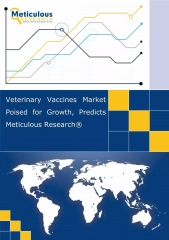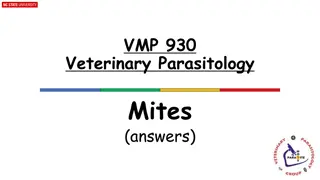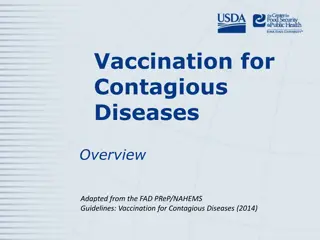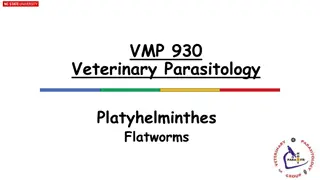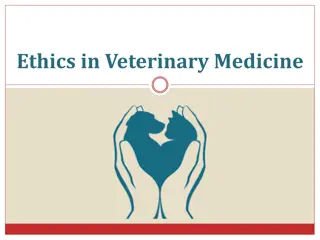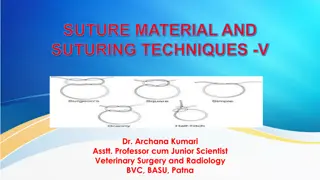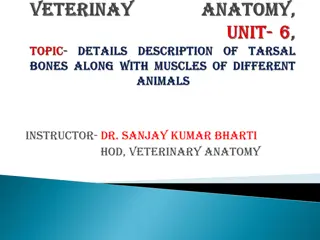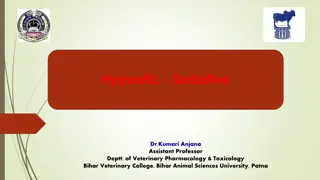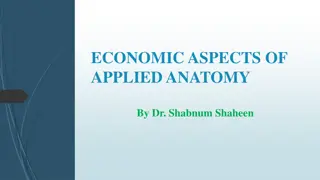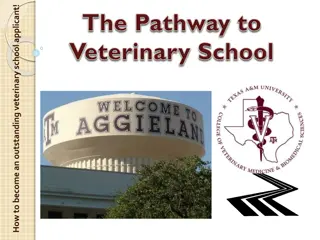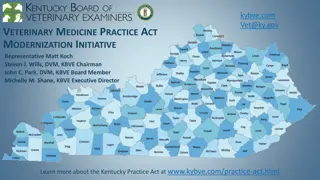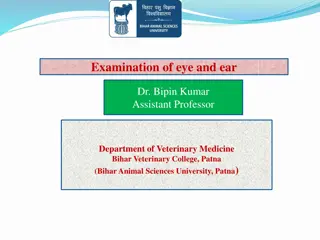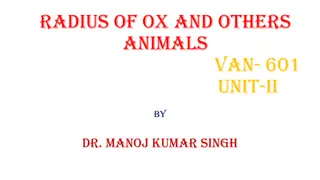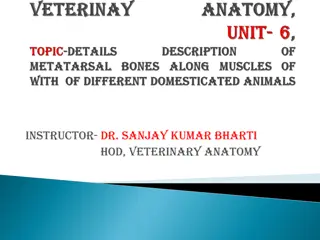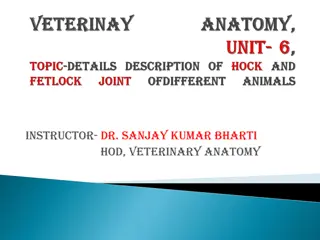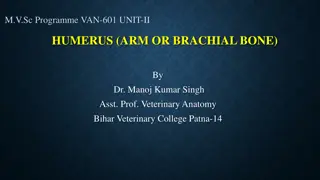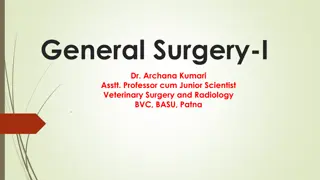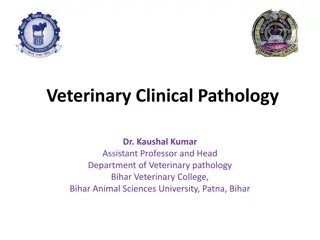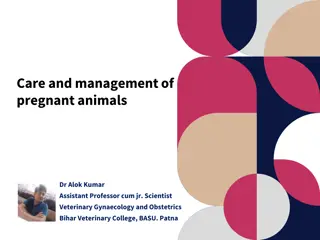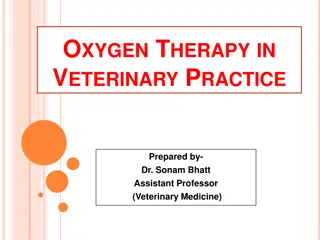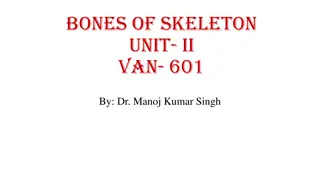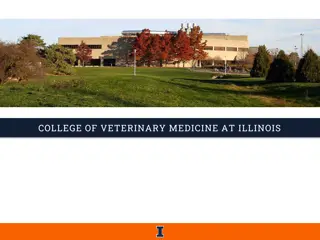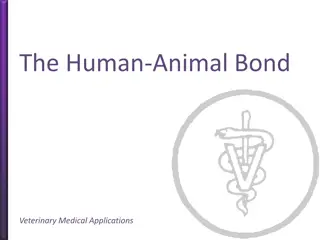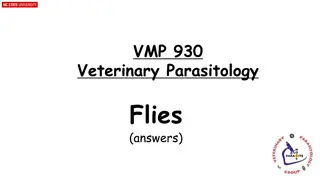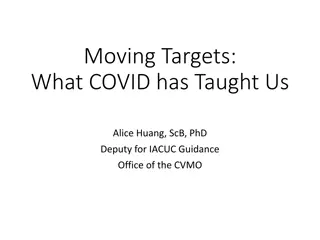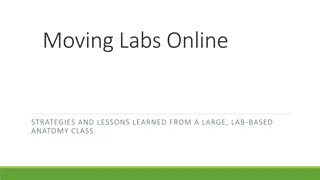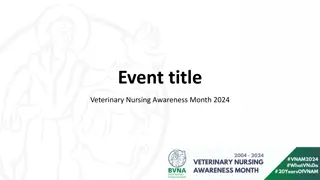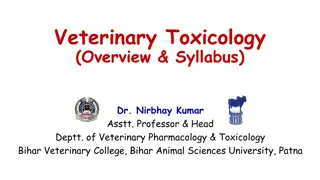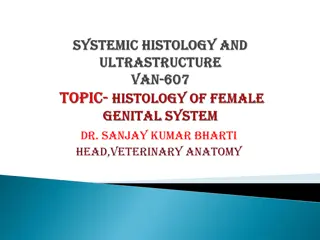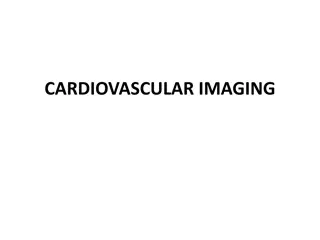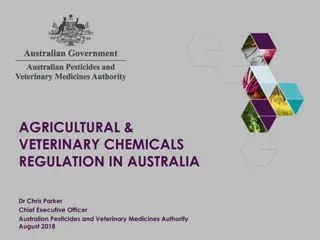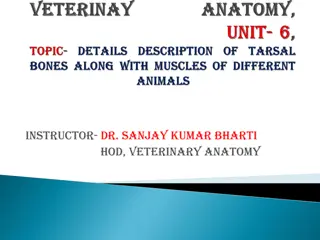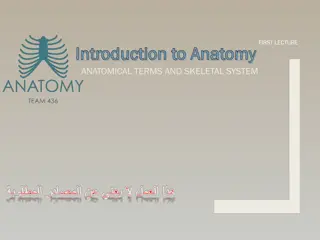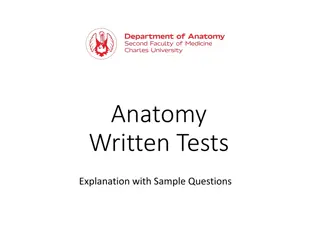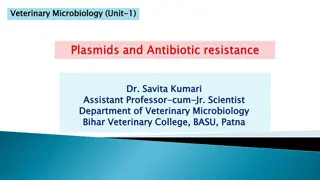Introduction-to-Brijon-Veterinary-Clinic.pptx
At Brijon veterinary Urgent care we are committed to achieving a higher standard for veterinary care. By providing expert care to pets in a timely manner, we strive to treat every dog or cat like our own.\n
5 views • 6 slides
Brijon-Veterinary-Urgent-Care.pptx
Elevate your pet's well-being with Brijon Veterinary Urgent Care, your local partner committed to more than just exceptional veterinary services. We go the extra mile in contributing to the overall health and happiness of pets across Massachusetts. Through active community engagement and educational
8 views • 7 slides
Veterinary Vaccines Market Poised for Growth, Predicts Meticulous Research®
Veterinary vaccines are integral to the veterinary healthcare industry as they help prevent diseases and their spread. They also reduce the risk of transmission of infections from household pets to their owners. Several types of vaccines, such as live attenuated, inactive, recombinant, and other vac
0 views • 3 slides
Understanding Veterinary Parasitology: Mites, Poultry Mite Characteristics, and Minor Mites Quiz
Explore the world of veterinary parasitology with a focus on mites, including poultry mite characteristics and a quiz on minor mites. Learn about different mite species affecting birds and animals, their identification, traits, and management. Delve into distinguishing features, clinical signs, and
4 views • 20 slides
Addressing the Veterinary Clinical Faculty Workforce Crisis at UMN
Veterinary institutions like UMN are facing a critical shortage of clinical faculty, hindering their ability to train specialists and meet the growing demand for veterinarians. To combat this issue, UMN is proposing a unique license to attract highly qualified faculty from non-accredited schools, en
3 views • 7 slides
Veterinary Vaccination Guidelines and Regulation Overview
This presentation provides an overview of veterinary vaccination guidelines and regulations, covering topics such as the National Veterinary Stockpile, types of vaccines, vaccine delivery, storage, and handling. It also discusses the regulatory framework governing veterinary vaccines and the role of
5 views • 30 slides
Understanding Flatworms and Roundworms in Veterinary Parasitology
This comprehensive content explores the world of flatworms and roundworms in veterinary parasitology. It covers various classes such as Turbellaria, Monogenea, Trematoda, and Cestoda, detailing their characteristics, importance in veterinary medicine, and complex life cycles. The content touches on
1 views • 34 slides
Ethics in Veterinary Medicine: Addressing Ethical Dilemmas in Animal Care
Ethics in veterinary medicine focuses on the moral aspects of human behavior and decision-making when faced with conflicting choices. It explores key issues such as animal surgeries, hospitalization, and euthanasia, aiming to determine the most ethical course of action in treating animals. Veterinar
0 views • 30 slides
Veterinary Suturing Techniques and Materials Overview
Understanding the principles of suturing in veterinary surgery is crucial for effective wound closure. This article covers different suturing techniques such as apposition, inversion, and miscellaneous sutures, along with details on needle handling, tissue penetration depth, and suture placement. Im
1 views • 14 slides
Understanding Tarsal Bone Anatomy in Veterinary Science
Tarsal bones in veterinary anatomy play a crucial role in the structure of an animal's hind limbs. Comprising five short bones arranged in distinct rows, including the tibial, fibular, and central tarsals, the tarsus supports movement and stability. The largest tarsal, known as the calcaneal tubercl
1 views • 24 slides
Overview of Sedatives and Hypnotics in Veterinary Pharmacology
This chapter discusses the classification, salient features, and uses of sedatives and hypnotics in veterinary pharmacology. Sedatives subdue excitement and induce calmness without necessarily causing sleep, while hypnotics induce and maintain sleep. Both classes of drugs act as CNS depressants and
1 views • 23 slides
Economic Aspects of Applied Plant Anatomy in Practical Use
Applied Plant Anatomy involves the practical application of anatomical knowledge in various fields such as identification, classification, taxonomic applications, medicinal plants, food safety, wood analysis, forensic investigations, and more. By understanding plant anatomy, professionals can utiliz
0 views • 26 slides
Ultimate Guide to Becoming an Outstanding Veterinary School Applicant
Prepare yourself for veterinary school by excelling in college, taking recommended courses, maintaining a high GPA, gaining veterinary experience, and getting involved on campus. Focus on academics, get involved in extracurricular activities, and start preparing early for standardized tests such as
1 views • 25 slides
Kentucky Veterinary Medicine Practice Act Modernization Initiative Overview
Kentucky Veterinary Medical Board of Examiners (KBVE) has undertaken a comprehensive modernization effort for the state's Practice Act. The initiative involves reviewing national models, engaging professional associations, and collaborating with key stakeholders to propose updates. The modernization
1 views • 15 slides
Comprehensive Guide to Ophthalmic Examination in Veterinary Medicine
A detailed guide on the ophthalmic examination of animals led by Dr. Bipin Kumar, Assistant Professor at the Bihar Veterinary College. The examination covers history taking, general physical examination, evaluation of vision, pupil function, eyelid function, adnexal and anterior segment examination,
1 views • 9 slides
Anatomy of the Ox Radius: Structure and Function
The radius of an ox is the larger and shorter bone of the forearm, situated between the elbow and carpal joints. It consists of a shaft with distinct surfaces and borders, facilitating muscle attachments and joint movements in the forelimb. The proximal extremity articulates with the humerus, while
0 views • 11 slides
Veterinary Anatomy of Ox Metatarsus Bones
The metatarsus bones of an ox consist of fusion of large and small metatarsal bones. The large metatarsal bone has distinct features at its proximal and distal extremities, while the small metatarsal is disc-shaped and located at the postero-medial aspect. The ox also has three metatarsal bones, one
0 views • 18 slides
Veterinary Anatomy: Tarsal Bone Structure and Ligaments
Veterinary anatomy lesson featuring the composite joint of the tarsus in an ox, detailing the arrangement of short bones in the tarsus and the ligaments involved. Images and descriptions explain the composition of the composite joint, the types of movements it allows, and the ligaments supporting it
3 views • 28 slides
Anatomy of the Humerus Bone in Veterinary Science
The humerus bone, also known as the arm or brachial bone, plays a crucial role in forming the shoulder and elbow joints. It features a shaft with distinct surfaces and nutrient foramen. The proximal extremity includes a head, neck, tuberosities, and a bicipital groove for various muscle attachments.
0 views • 15 slides
Evolution of Veterinary Surgery: Insights from Ancient India to Modern Innovations
Delve into the historical perspective and advancements in veterinary surgery, starting with ancient Indian veterinarians like Salihotra and Palakapya, through the foundational work of Susruta Samhita, to the modern developments in surgical methods like anesthesia, microbiology, antibiotics, and bloo
4 views • 18 slides
Overview of Veterinary Clinical Pathology and Importance of Anticoagulants
Veterinary clinical pathology involves the laboratory diagnostics and analysis of bodily fluids and tissues to support the diagnosis, treatment, and prevention of diseases. This field encompasses interpreting blood tests, blood smear examinations, and the use of various anticoagulants in specimen co
2 views • 46 slides
Care and Management of Pregnant Animals in Veterinary Practice
This comprehensive guide by Dr. Alok Kumar, Assistant Professor and Scientist in Veterinary Gynaecology and Obstetrics at Bihar Veterinary College, covers key aspects of care and management of pregnant animals, including objectives, conception management, pregnancy diagnosis, nutritional management,
5 views • 19 slides
Oxygen Therapy in Veterinary Practice
Oxygen therapy is a crucial intervention in veterinary medicine, especially in emergency situations to address hypoxia and increase oxygen delivery to tissues. It involves delivering high concentrations of oxygen to optimize oxygen levels in the blood. Indications for oxygen therapy include hypoxia
1 views • 15 slides
Understanding Anatomy: Branches and Components of the Human Body
Anatomy, the study of body tissue structures, encompasses various branches including Gross Anatomy, Systematic Anatomy, and Microscopic Anatomy. Osteology focuses on the skeleton's components and functions as a crucial support system for the body, aiding in movement and protection of organs.
5 views • 12 slides
Exploring the College of Veterinary Medicine at Illinois
Dive into the world of veterinary medicine at the College of Veterinary Medicine at Illinois through this visual journey. Discover the facilities, programs, and opportunities available at this renowned institution. Learn about the cutting-edge research and compassionate care provided by faculty and
0 views • 5 slides
Exploring the Human-Animal Bond in Veterinary Medicine
Delve into the significance of the human-animal bond in veterinary medicine, highlighting the mutually beneficial relationship between animals and humans over time. Understand how this bond has evolved, the role of veterinary assistants in fostering this connection, and the changing dynamics of huma
0 views • 26 slides
Sexual and Reproductive Anatomy Lesson for 5th Grade
Explore the essential aspects of male and female sexual and reproductive anatomy in this detailed 5th-grade lesson from the Rights, Respect, Responsibility sexuality education curriculum. The images provided offer a visual guide to understanding external female anatomy and reproductive anatomy, aidi
0 views • 5 slides
Veterinary Equipment Showcase
Explore a diverse range of veterinary instruments and equipment including alligator forceps, automatic dose syringe, artificial vagina, autoclave, and more. Discover specialized tools for various veterinary procedures and examinations showcased in high-quality images.
0 views • 98 slides
Veterinary Parasitology Flies: Identification and Pathologies
This content covers information related to veterinary parasitology focusing on flies, their scientific names, common names, characteristics, and pathologies associated with them. It also includes details on types of myiasis, bot characteristics, and filth fly characteristics, providing a comprehensi
0 views • 8 slides
Insights from COVID-19 Impact on Veterinary Research Practices
The evolving landscape of veterinary research in light of COVID-19 showcases shifting research questions, procedural changes, and advancements in veterinary medicine. Cultural standards and oversight practices have also adapted, as highlighted in presentations from the AALAS National Meeting 2021 in
3 views • 12 slides
Strategies and Lessons Learned for Moving Anatomy Labs Online
Explore strategies, challenges, and tips for transitioning large lab-based anatomy classes online. Discuss considerations, effective delivery options, assessment methods, and examples like Human Anatomy activities. Learn from an Associate Professor's experience teaching human anatomy and physiology
0 views • 13 slides
Veterinary Nursing Awareness Month 2024
Celebrate Veterinary Nursing Awareness Month in 2024 with informative and engaging content slides. Explore important messages and takeaways to promote awareness and appreciation for veterinary nursing. Join the campaign to recognize the valuable contributions of veterinary nurses across the globe. S
0 views • 4 slides
Overview of Veterinary Toxicology Syllabus and Topics Covered
Detailed overview of the Veterinary Toxicology syllabus including general toxicology, toxicity caused by metals and non-metals, poisonous plants, agrochemical toxicity, fungal and bacterial toxins, venomous bites and stings, and more. The syllabus covers a wide range of topics related to toxicology
0 views • 12 slides
Female Genital Organs: Ovaries and Anatomy Overview
This informative presentation covers the anatomy of female genital organs, focusing on the ovaries. It explains the functions of the ovaries, their structure, and the various stages of ovarian follicle development. Dr. Sanjay Kumar Bharti's expertise in veterinary anatomy is highlighted through deta
0 views • 15 slides
Comprehensive Guide to Cardiovascular Imaging and Anatomy
Explore a detailed collection of images showcasing cardiovascular imaging, radiological anatomy of the chest, vascular anatomy, and pulmonary conditions like embolism. Discover the gold standard for diagnosing pulmonary embolism, as well as CT angiograms and aortic arch anatomy. Engage with visuals
0 views • 59 slides
Agricultural and Veterinary Chemicals Regulation in Australia - Overview
The regulation of agricultural and veterinary chemicals in Australia is overseen by the Australian Pesticides and Veterinary Medicines Authority (APVMA), established in 1993. The APVMA is responsible for assessing and registering pesticides and veterinary medicines to ensure their safety and effecti
0 views • 15 slides
Veterinary Anatomy: Tarsal Bone Structure and Function
The veterinary anatomy lesson delves into the intricacies of the tarsal bone in oxen, detailing its composition, arrangement of short bones, and specific features like the tuber calcis and articulation points. The tarsus comprises different rows of bones, each serving a specific function in locomoti
0 views • 24 slides
Introduction to Anatomy: Anatomical Terms and Skeletal System
An introduction to anatomy covering anatomical terms and the skeletal system. It defines anatomy, explains anatomical sciences, discusses the skeletal system, and outlines anatomical terminology including terms of position. The content includes objectives, classifications of bones, and different ana
0 views • 28 slides
Anatomy Written Tests Overview with Sample Questions
Explore different types of anatomy questions commonly seen in written tests, including general anatomy, structural anatomy, functional anatomy, topographical anatomy, imaging anatomy, clinical anatomy, microscopic anatomy, and embryo-related topics. Sample questions and answers are provided for each
0 views • 12 slides
Assistant Professor Dr. Savita Kumari at Bihar Veterinary College, BASU, Patna
Dr. Savita Kumari serves as an Assistant Professor in the Department of Veterinary Microbiology at Bihar Veterinary College, BASU, Patna. She is actively involved in teaching and research in the field of Veterinary Microbiology.
0 views • 20 slides


